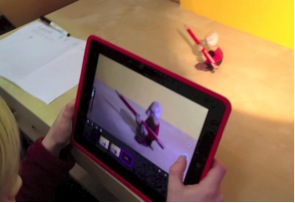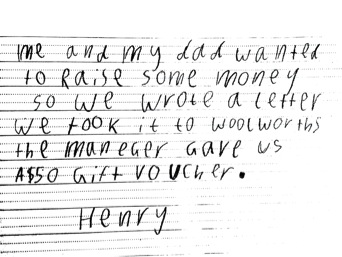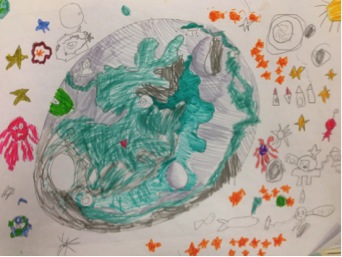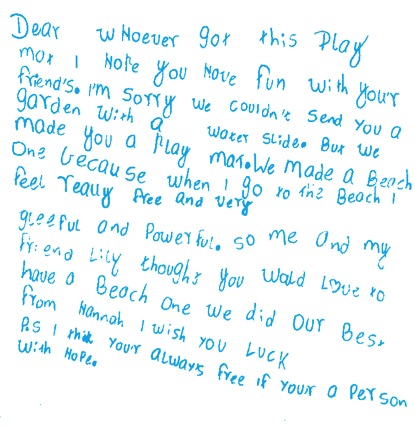I have been thoroughly neglectful of this blog! It is somewhat ironic that I spend a good deal of time talking about the need for reflection; time to think and slow down instruction for deeper understanding – while I rush around allowing myself precious little time out to write! There is a back-log of posts I am eager to get out there so I hope that the remainder of the year will see them come to fruition. A number of issues have got me wondering of late. Perhaps the most intriguing has been about the relationship between what we describe as ‘specialist’ programs (in elementary/primary schools) and inquiry. The expertise of specialist teachers in any primary school is often a hugely undervalued resource. It is not uncommon for me to run a workshop where specialist teachers don’t attend due to the perception it is ‘not really relevant ‘ to their subject area. And yet – some of the best inquiry teaching I have seen occurs in art rooms, music studios, gymnasiums, etc.
I have taken my ‘wonderings’ to friends who are professional artists, musicians, writers, etc. and, without exception, they describe their own learning and the development of their skills as a true process of inquiry. Sure, they have all benefited from others showing them how to execute a skill and from the wisdom of masters in the field – but they also talk passionately about the need to explore, experiment, meander, question, reflect – the hallmarks of inquiry learning. I sometimes wonder whether my beliefs about my skills in visual arts (I am an ‘I can’t draw’ person) might have been different had I not been expected to 'do art' the way the art teachers insisted - had I not been compelled to create a given ’product’ the same as everyone else's and had I been given the opportunity to see what I could discover for myself with some freedom to explore.
Of most interest to me are views about language teaching as not compatible with inquiry – yet I know of no more inquiring an experience for me than the quest to master new language in a non-English speaking country! What we need in these situations is a desire to master the skill, the learning skills to help ourselves do so and the availability of an expert/coach when we need one!
My work in international schools in particular increasingly involves teachers who work in single subjects areas such as music, PE, visual arts, languages, and so on. I am noticing some recurring questions in our conversations - some specialist teachers are frustrated by the restrictions that exist due to timetables or other people's perception of their role. Common questions include:
- How can I use an inquiry approach when I have such short sessions with the children? (some specialist teachers have as little as 30 minutes per lesson)
- How can we use inquiry when we have no time for collaborative planning with generalist classroom teachers?
- How can we help classroom teachers (and students) see our role more deeply than giving them time release or ‘supplementing’ their unit with shallow, related, activities?
- Ours is a skill-based subject – how can we use inquiry when we have to actually ‘teach’ kids what to do?
- We are expected to make links to the ‘units’ that classroom teachers are doing but they often don’t suit our program – how can we manage this challenge?
For those now anticipating a clear, decisive response to each of those questions – be prepared to be disappointed! The very reason these questions emerge time and time again is that they reflect some pervasive misconceptions that still exist in relation to inquiry OR they are the product of the way we have organized our schools/programs. Having said that, there are several things I have found helpful to consider when thinking about the relationship between inquiry and specialist programs. Here are my thoughts – I would love to hear yours!
It’s an approach – not a classroom ‘subject’. We can ALL be inquiry teachers. While we continue to associate inquiry only with ‘units’ of work in the classroom – these issues will persist. When we see inquiry as an approach rather than a subject, then it becomes relevant to all teachers, all learners. Even in a 30 minute session, teachers can ask themselves “how can I provide more inquiry based learning experiences for my students? How can I encourage them to explore, make their own connections, ask questions, etc.” A simple example would be a PE teacher choosing to give her/his young students time to experiment with different ways to get a ball from point A to B as quickly as possible before providing any direct instruction on techniques. The lesson is flipped from ‘watch me, listen to me, then have a go…’ to have a go – then we will see what we discover AND what we need to focus on. And while we are on the subject of PE, check out these great examples of specialists as inquiry teachers: http://www.pyppewithandy.com/ and http://www.iphys-ed.com/inquiry-in-pe
Working on the same ‘content’ does not make it any more inquiry based. In the past, our attempts to make stronger connections between specialist and generalist programs have often manifested in specialist taking on the same ‘topic’ being worked on in the classroom. I don't need to go into the problems associated with shallow, tenuous links. Suffice to say, forced connections that can compromise the integrity of the discipline do nothing for student learning. Let’s not confuse the term ‘integrated’ learning with ‘inquiry’ learning. That said, where learning can be genuinely integrated through shared skills and concepts the result can be powerful. If the content offers a perfect ‘context’ for student learning in a specialist area then go for it – but never force the issue!
Transdisciplinary skills are just that – transdisciplinary. Regardless of the program/curriculum, most inquiry schools recognise some framework of skills and dispositions that are shared across all subject areas. These may include, for example, social and self management skills thinking skills and communication skills. As I have discussed before, these skills should be inquired into as part of students’ learning experiences. Highlighting the same skills in specialist programs (not all of them every time – but at least some!) helps students transfer their learning AND widens the scope of inquiry. For example – students exploring ways to give others feedback in the classroom can consciously practice and extend that skill in PE, in art, etc. If any aspect of planning is shared between generalist and specialist teachers I think it should be this.
Create opportunities for shared teaching. Watching each other at work is a very effective form of professional learning. In an inquiry school, opportunities to observe practice helps build bridges between specialist and generalist teachers AND within specialist programs. Observations across subject areas helps us think less about the content and more about the pedagogy. I am not a PE teacher – but have learned a great deal from watching skilled, inquiry based PE teachers work with students. Watching the way an inquiry based art specialist promotes reflective and critical thinking can help transform the teaching techniques for literacy in the generalist classroom.
Identify shared learning strategies and build a common language for students to ‘talk about learning. We all know that opportunities to transfer and practice skills and strategies in different contexts are vital for deeper learning. When specialist and generalist teachers communicate with each other about the strategies (such a visible thinking routines) they are introducing or revising at any year level – students have a greater chance of experiencing this transfer.
Consider flexible timetabling, shared use of learning spaces, more personalized access to specialist ‘studios’: Perhaps one of the biggest impediments to more authentic, inquiry based approaches to ‘specialist’ programs is the structures used in most schools – eg: a lesson per week for each class at a set time. As this time is so often used for generalist collaborative planning, it can mean there are precious few opportunities for shared, cross program conversations –it may also serve to reinforce some students’ perception of inquiry as a ‘subject’ that happens in their classroom rather than elsewhere. Several schools continue to explore ways to re-think the way they structure for specialized learning in these areas. Arrangements include flexible timetables, for example - library teachers might be booked on a needs basis and work alongside the classroom teacher to coach students’ research skills. Art rooms in some schools have become studios where students can access materials and expertise of the specialist teacher beyond their designated session time. If schools offer an ‘itime’ or ‘genius hour’ program – specialist teachers and any designated learning spaces can be utilized if the timetable allows.
It is so exciting to see the growth of understanding of inquiry as an approach to teaching and learning rather than something that happens in ‘units’ that are occasionally integrated into specialist programs. We have come a long way.
I would love to hear from more of you about how you have approached this in your schools – what’s the relationship between ‘inquiry’ and specialist subject areas in your school?
…Just wondering….








